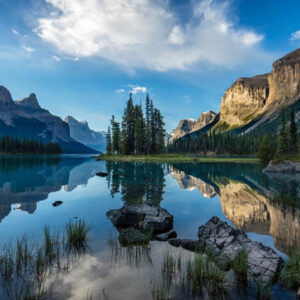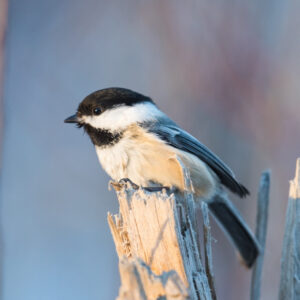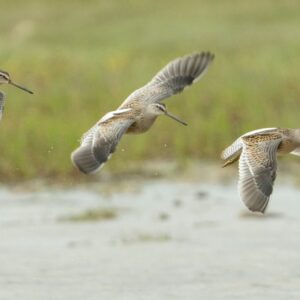Ready, Set, REVERSE: New UN report calls to prevent the extinction of nature
A game-changing new international report was released today on Nature’s Dangerous Decline. It’s the kind of reading that can keep you up at night, and then help us all rethink our priorities in the morning.
Produced by the Intergovernmental Science-Policy Platform on Biodiversity and Ecosystem Services (IPBES), the findings, prepared by hundreds of experts from 50 countries, depict an alarming picture of the on-going destruction of nature, and a loss of species not seen since the age of the dinosaurs.
Extinction looms for one million species of plants and animals. Species loss is accelerating at a rate tens or hundreds of times faster than in the past, according to the report. More than half-a-million terrestrial species have insufficient habitat for long-term survival and are likely to go extinct; marine species are no better off.
The report shows that unsustainable human activity—from deforestation to industrial farming— has already “severely altered” 40% of the planet’s marine environments, 50% of inland waterways, and 75% of land.
Why does it matter?
As Indigenous peoples have known for millennia, all life depends on nature—for food, water, energy and wellbeing. All species – including algae, insects, trees, animals and humans – are fundamentally interconnected.
In the 1980s two conservation researchers, Paul and Anne Ehrlich, tried to help the Western world understand this system by explaining that species are to ecosystems as rivet fasteners are to airplanes. One missing rivet may go unnoticed, but with each subsequent loss, the passengers are heading for certain disaster.
The IPBES report sets itself apart from many other scientific studies by drawing on Indigenous knowledge and the experience of local peoples who have been preserving ecosystems for generations.
The report also underscores how the current attack on nature will impact Indigenous peoples and the world’s poorest communities most severely including increasing their vulnerability to climate change.
Twin threats
The IPBES report clearly identifies that loss of nature is as big as climate change. The two are deeply connected. If we lose forests and mangroves, we undercut the planet’s ability to hold carbon. Climate change also affects habitat, creating hard-to-survive changes to wildlife.
The message? Business as usual is not an option.
Once a species is lost there is no going back. Extinction is by definition irreversible. But as the report makes clear, we can solve the impending extinction crises and ensure nature, and all of us, can flourish.
The road map to restore nature– Protected Places
We know that protecting habitat is essential for the survival and recovery of species. There is increasing evidence that to ensure a viable future for all, between 30 to 70% of nature must be protected—essentially, Nature needs half.
Many government leaders and communities are working to set out and achieve ambitious targets to lock in protection for land and water around the world. In Canada, we have close to a quarter of the world’s wild forests and wetlands. That means the country has a critical role to play in protecting nature and putting an end to species extinctions.
This starts with Canada’s commitment to double protected areas by 2020—ensuring 17% of land and inland waters and 10% of oceans are protected by that date. We are well on our way, with a new marine protected area announced at the government’s recent Nature Champion’s Summit.
Over 80% of Canada’s nature remains unprotected. With the scale of the attacks against nature, citizen voices are needed to push for continued and stronger action and to create space for leaders to be bold, including scaling up support for Indigenous-led conservation
We are racing against time but also racing for our lives.
Nature Canada invites you to be a voice for nature, by joining our petition campaigns to protect wildlife. You can also find ways to work with community members to safeguard nature in your own neighbourhoods, like gardening with bird-friendly plants.
Together we can stem the loss of species and put an end to the extinction of nature.
Media coverage of the report
- CBC, Nature is in its worst shape in human history, UN report says;
- CNN, One million species threatened with extinction because of humans;
- BBC, Nature crisis: Humans ‘threaten 1m species with extinction;
- Washington Post, One million species face extinction, U.N. report says. And humans will suffer as a result



